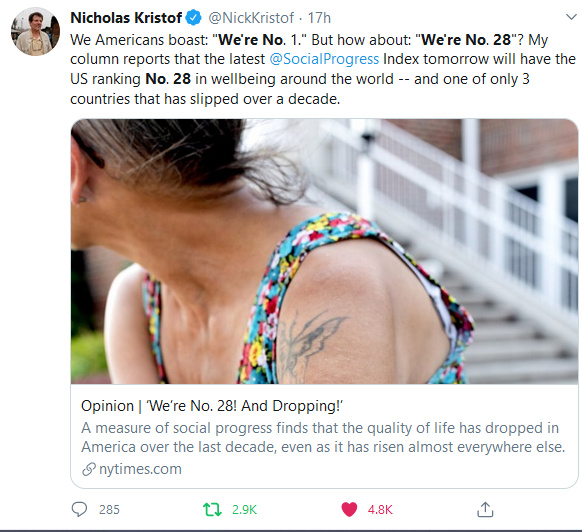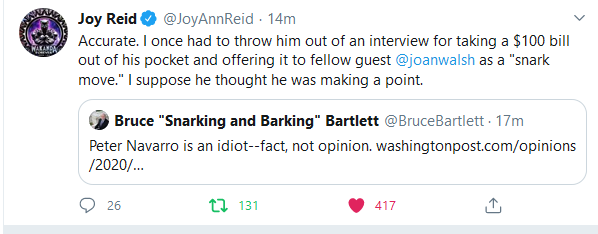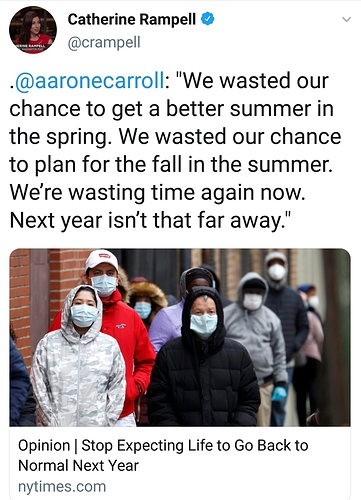The Great Liberal Reckoning Has Begun
The death of Justice Ruth Bader Ginsburg concludes an era of faith in courts as partners in the fight for progress and equality.
The death of Justice Ruth Bader Ginsburg ends an incredible legal career, one that advanced gender equality and inspired millions. RBG, as she became popularly known, was, like Thurgood Marshall before her, one of the handful of justices who, through their work as lawyers fighting for justice, can truly be said to have earned their spot on the judicial throne. But the outpouring of grief that has followed her death is not just for the passing of a revered figure in American law but also for the end of an important force in American society: the liberal faith in the Supreme Court.
This faith is more recent than many people recognize. A century ago, the biggest critics of the federal judiciary were on the left, and for good reason. For most of its history, the Supreme Court was the most conservative of the three branches of government, consistently blocking, or at least delaying, efforts at social, political, and economic reform. From Dred Scott and Plessy v. Ferguson , in which the Court upheld the subordination of racial minorities, to Lochner , which denied the government the ability to regulate much of economic life, the Court epitomized what William F. Buckley would later identify as the conservative credo: the impulse to “stand athwart history, yelling Stop.” By the Progressive Era and the Great Depression, it was widely held that the Supreme Court could only hinder, not help, the cause of reform.
But then, for a few decades, everything changed. The fundamental reason was politics: Over his 12-year presidency, Franklin Delano Roosevelt appointed a record eight new justices, nearly an entire Supreme Court’s worth, two of whom—the liberal icons Hugo Black and William O. Douglas—served into the 1970s. The context changed as well: The federal government’s massive expansion during the New Deal and World War II transformed both elite and popular understandings of the Constitution. This change was so profound that Dwight Eisenhower, the first Republican president elected after FDR, appointed the two justices, Earl Warren and William Brennan, who would later lead the Court to its liberal zenith. These were the decades of Brown v. Board of Education , of the removal of religion from public schools, of the expansion of free speech and the rights of criminal defendants. In these decades the Court was a true partner in the political branches’ attempt to move the country forward.
Richard Nixon began the Supreme Court’s shift back to the right, appointing conservatives like Warren Burger, Lewis Powell, and William Rehnquist. Liberals still won a few important victories—most notably 1973’s Roe v. Wade —but since 1969 Republican presidents have appointed 14 justices. Democrats have appointed only four. The past half century of American constitutional law is defined, more than anything else, by this simple fact.
From today’s vantage point the fragility of the mid-century liberal judicial victories is abundantly clear. The Supreme Court repeatedly retreated from its promise of sweeping change. Brown repudiated the notorious “separate but equal” doctrine that justified Jim Crow segregation, but when, a year later, the Court was asked to enforce its initial ruling, it meekly held that southern states should desegregate public schools “with all deliberate speed.” Determined southern officials ran circles around cautious federal courts, and desegregation did not begin in earnest until the passage of federal civil-rights legislation in the mid-1960s. This story has played out over and over again. Criminal procedure has become steadily less friendly to criminal defendants over the past 50 years. And Roe ’s strict limits on government regulation of abortion were replaced by Planned Parenthood v. Casey ’s far laxer “undue burden” test, under which abortion rights have weakened to such an extent that many scholars view Roe as having already been essentially overruled.
While the Supreme Court was under-delivering on its promises, liberal elites were devoting much of their intellectual and emotional resources to the Court, hoping against hope that an appeal to the swing justice will eke out a 5–4 victory for this or that liberal cause. Lawyers and scholars spent a decade trying to bring Anthony Kennedy into the fold, citing his landmark rulings on gay rights and wartime civil liberties as evidence of an imminent conversion to the liberal cause. Yet all the while, Kennedy kept adding to his deeply conservative voting record, a legacy he made sure to preserve by retiring in 2018, thereby allowing a Republican to appoint his successor. Lately focus has turned to John Roberts, in the hope that his commitment to the Supreme Court as an institution will moderate his otherwise-conservative legal positions. And while Roberts, like Kennedy before him, has occasionally voted with the liberals—such as in upholding the Affordable Care Act and ruling against the Trump administration in several important cases last term—the Court’s march to the right continues.
The choice to focus on courts has had its most fateful results with abortion, in which the lion’s share of liberal organizational energy has gone into desperate, rear-guard defenses of judicially granted abortion rights. Despite the work of groups like Planned Parenthood and NARAL, anti-abortion-rights advocates have captured statehouses in red states and many purple ones, with one-third of the more than 1,000 abortion restrictions since Roe passed in just the past decade. Roe failed to create a durable political consensus in favor of abortion rights, as occurred over the same period in Western Europe, where abortion rights were secured by legislatures rather than courts. This failure has been one of the key criticisms of Roe from pro-choice advocates, and RBG herself criticized Roe ’s sweeping reach on these grounds in a 1985 essay, noting, “The political process was moving in the early 1970s, not swiftly enough for advocates of quick, complete change, but majoritarian institutions were listening and acting. Heavy-handed judicial intervention was difficult to justify and appears to have provoked, not resolved, conflict.”
If the Supreme Court has proved itself, time and time again, to be unwilling or incapable of advancing the liberal conception of justice, why have so many liberals, for so long, let themselves be victims of judicial gaslighting? Part of it is that the Warren and early Burger Courts painted a vivid, alluring picture of what justice by judiciary could look like. And even if liberals understood, deep down, that those two decades were an aberration in American legal history, the Court has given them just enough victories since then to keep the dream alive. For lawyers and law professors, there is also the simple matter of professional vanity: If the Supreme Court is the vanguard of American justice, then judges, and thus the lawyers who argue before them and the scholars who analyze (and, when necessary, chastise) them, are the nation’s most important profession—the priests and elders of the civic religion that is American constitutionalism.
Fundamentally, though, many liberals loved the Supreme Court for the same reason they loved the law: a vision of universal harmony and justice brought about by reason and persuasion, not the brute forces of political power. Victory in the political arena is always incomplete and uncertain, not to mention grubby. Politics appeals to our baser instincts of greed and fear and competition—which, of course, is why it is so powerful. By contrast, law—whether through “neutral principles” or “reasoned elaboration” or elaborate moral theories, to name a few of the core organizing ideas of 20th-century legal theory—holds out the promise of something objective, something True. To win in the court of the Constitution is to have one’s view enshrined as just, not only for today but with the promise of all time.
But eventually liberals lost faith that the Court would interpret the Constitution in their favor. What started as a trickle of disillusionment grew throughout the 1980s and ’90s and became a torrent when Roberts became chief justice in 2005 and led the conservative wing to undermine a number of liberal legal priorities, from gun control to campaign-finance law to voting rights. Although many liberal lawyers still dutifully fight in federal court to protect rights where they can, they do so with the increasing understanding that they are simply delaying the inevitable. And legal scholars have gradually given up on the Court as a guarantor of constitutional values, advancing theories of popular constitutionalism or progressive federalism to serve as a counterweight to the Court’s conservative transformation. Whatever was left of the Court’s sacred aura as above partisan politics was ripped away by Mitch McConnell’s denial of a vote to Merrick Garland in 2016 and the bitterness of the confirmation hearings over Brett Kavanaugh two years later.
The clearest sign that many liberals are giving up their remaining idealism about the Court is that, for many moderate Democrats (not to mention those on the progressive left), court packing has gone from a fringe theory to not just a viable option but a moral imperative if Joe Biden wins in November and the Democrats take back the Senate. Court packing is straightforwardly constitutional—the Court’s size fluctuated before the Civil War, and its current composition of nine justices is set by statute. But adding justices in retribution for the perfidy of Senate Republicans would require taking a wholly instrumental view of the Court—just another veto point in America’s groaning vetocracy, a super-legislature subject to the same politics as Congress or the White House. It’s a truth that many historians and political scientists have understood for a long time but that many lawyers are only beginning to accept. And it’s a hard, disenchanting truth.
The end of the liberal love of the courts will not, of course, be the end of liberals’ fight over them. Liberals will continue to work to get their judges on the Supreme Court and the lower courts. They will champion court decisions that go their way and will explore limiting the judiciary’s powers when it rules against them. Liberals will, in short, act more like conservatives, whose disillusionment with the mid-century Court freed them to view the judicial branch as an instrument of political power and to be unembarrassed by an explicit effort to staff it with the ideologically reliable, just as political parties choose their candidates. This realpolitik approach to judicial nominations is the reason for the Republican Party’s stunning success in reshaping the federal bench, and it is one that liberals will have no choice but to adopt themselves if they want to fight back.
In time, liberals may yet win the battle over the federal courts, but any victory will be bittersweet, because in their hearts they will know that the lofty dream is dead. Law is no savior from politics; it is only a temporary reprieve from the struggle between powers over power. Battle is coming. The question is: Do liberals still remember how to fight? Because conservatives certainly do.
3 ways a 6-3 Supreme Court would be different
If the late Justice Ruth Bader Ginsburg is replaced this year, the Supreme Court will become something the country has not seen since the justices became a dominant force in American cultural life after World War II: a decidedly conservative court.
A court with a 6-3 conservative majority would be a dramatic shift from the court of recent years, which was more closely divided, with Ginsburg as the leader of the liberal wing of four justices and Chief Justice John Roberts as the frequent swing vote.
As a scholar of the court and the politics of belief, I see three things likely to change in an era of a conservative majority: The court will accept a broader range of controversial cases for consideration; the court’s interpretation of constitutional rights will shift; and the future of rights in the era of a conservative court may be in the hands of local democracy rather than the Supreme Court.
A broader docket
The court takes only cases the justices choose to hear. Five votes on the nine-member court make a majority, but four is the number required to take a case.
If Roberts does not want to accept a controversial case, it now requires all four of the conservatives – Samuel Alito, Neil Gorsuch, Brett Kavanaugh and Clarence Thomas – to accept the case and risk the outcome.
If they are uncertain how Roberts will rule – as many people are – then the conservatives may be not be willing to grant a hearing.
With six conservatives on the court, that would change. More certain of the outcome, the court would likely take up a broader range of divisive cases. These include many gun regulations that have been challenged as a violation of the Second Amendment, and the brewing conflicts between gay rights and religious rights that the court has so far sidestepped. They also include new abortion regulations that states will implement in anticipation of legal challenges and a favorable hearing at the court.
The three liberal justices would no longer be able to insist that a case be heard without participation from at least one of the six conservatives, effectively limiting many controversies from consideration at the high court.
A rights reformation
The rise of a 6-3 conservative court would also mean the end of the expansion of rights the court has overseen during the past half-century.
Conservatives believe constitutional rights such as freedom of religion and speech, bearing arms, and limits on police searches are immutable. But they question the expansive claims of rights that have emerged over time, such as privacy rights and reproductive liberty. These also include LGBTQ rights, voting rights, health care rights, and any other rights not specifically protected in the text of the Constitution.
The court has grounded several expanded rights, especially the right to privacy, in the 14th Amendment’s due process clause: “…nor shall any state deprive any person of life, liberty, or property, without due process of law.” This sounds like a matter of procedure: The government has to apply the same laws to everyone without arbitrary actions. From the conservative perspective, courts have expanded the meaning of “due process” and “liberty” far beyond their legitimate borders, taking decision-making away from democratic majorities.
Consequently, LGBTQ rights will not expand further. The line of decisions that made Justice Anthony Kennedy famous for his support of gay rights, culminating in marriage equality in 2015, will advance no further.
Cases that seek to outlaw capital punishment under the Eighth Amendment’s ban on “cruel and unusual punishments” will also cease to be successful. In 2019 the court ruled that excessive pain caused by a rare medical condition was not grounds for halting a death sentence. That execution went forward, and further claims against the constitutionality of the death penalty will not.
Challenges to voting restrictions will likely also fail. This was previewed in the 5-4 decision in 2018 allowing Ohio to purge voting rolls of infrequent voters. The Bill of Rights does not protect voting as a clear right, leaving voting regulations to state legislatures. The conservative court will likely allow a broader range of restrictive election regulations, including barring felons from voting. It may also limit the census enumeration to citizens, effectively reducing the congressional power of states that have large noncitizen immigrant populations.
Birthright citizenship, which many believe is protected by the 14th Amendment, will likely not be formally recognized by the court. The court has never ruled that anyone born on U.S. soil is automatically a citizen. The closest it came was an 1898 ruling recognizing the citizenship of children of legal residents, but the court has been silent on the divisive question of children born of unauthorized residents.
The conservative understanding of the 14th Amendment is that it had no intention of granting birthright citizenship to those who are in the country without legal authorization.
Noncitizens may also find themselves with fewer rights: Many conservatives argue that the 14th Amendment requires state governments to abide by the Bill of Rights only when dealing with U.S. citizens.
In any case, individual rights will likely be less important than the government’s efforts to protect national security – whether fighting terrorism, conducting surveillance or dealing with emergencies. Conservatives argue that the public need for security often trumps private claims of rights. This was previewed in Trump v. Hawaii in 2018, when the court upheld the travel ban imposed against several Muslim countries.
Not all rights will be restricted. Those protected by the original Bill of Rights will gain greater protections under a conservative court. Most notably this includes gun rights under the Second Amendment, and religious rights under the First Amendment.
Until recently, the court had viewed religious rights primarily through the establishment clause’s limits on government endorsement of religion. But in the past decade, that has shifted in favor of the free exercise clause’s ban on interference with the practice of religion.
The court has upheld claims to religious rights in education and religious exceptions to anti-discrimination laws. That trend will continue.
A return to local democracy
Perhaps the most important ramification of a 6-3 conservative court is that it will return many policies to local control.
For example, overturning Roe v. Wade – which is likely but not certain under a 6-3 court – would leave the legality of abortion up to each state.
This will make state-level elected officials the guardians of individual liberties, shifting power from courts to elections. How citizens and their elected officials respond to this new emphasis is perhaps the most important thing that will determine the influence of a conservative court.




